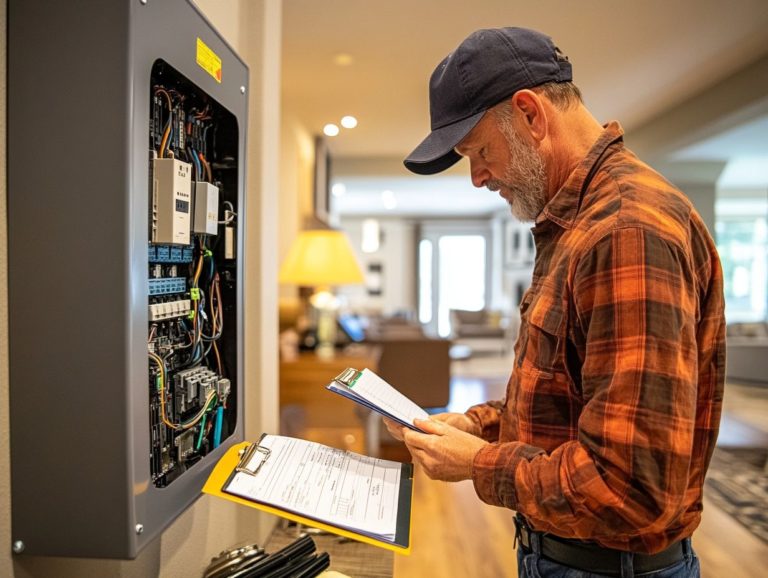Does Home Insurance Cover Mold Damage?
Mold damage can become a homeowner’s worst nightmare. It often results in expensive repairs and serious health concerns.
Understanding home insurance coverage for mold can be confusing, yet it’s essential for protecting your investment. This article explores what mold damage is, the types of home insurance coverage available, and whether your policy addresses mold-related issues.
Knowing what to do if your insurance falls short, effective prevention strategies, and steps for successful mold remediation are crucial. Stay informed to protect your home and health from mold!
Contents
Key Takeaways:
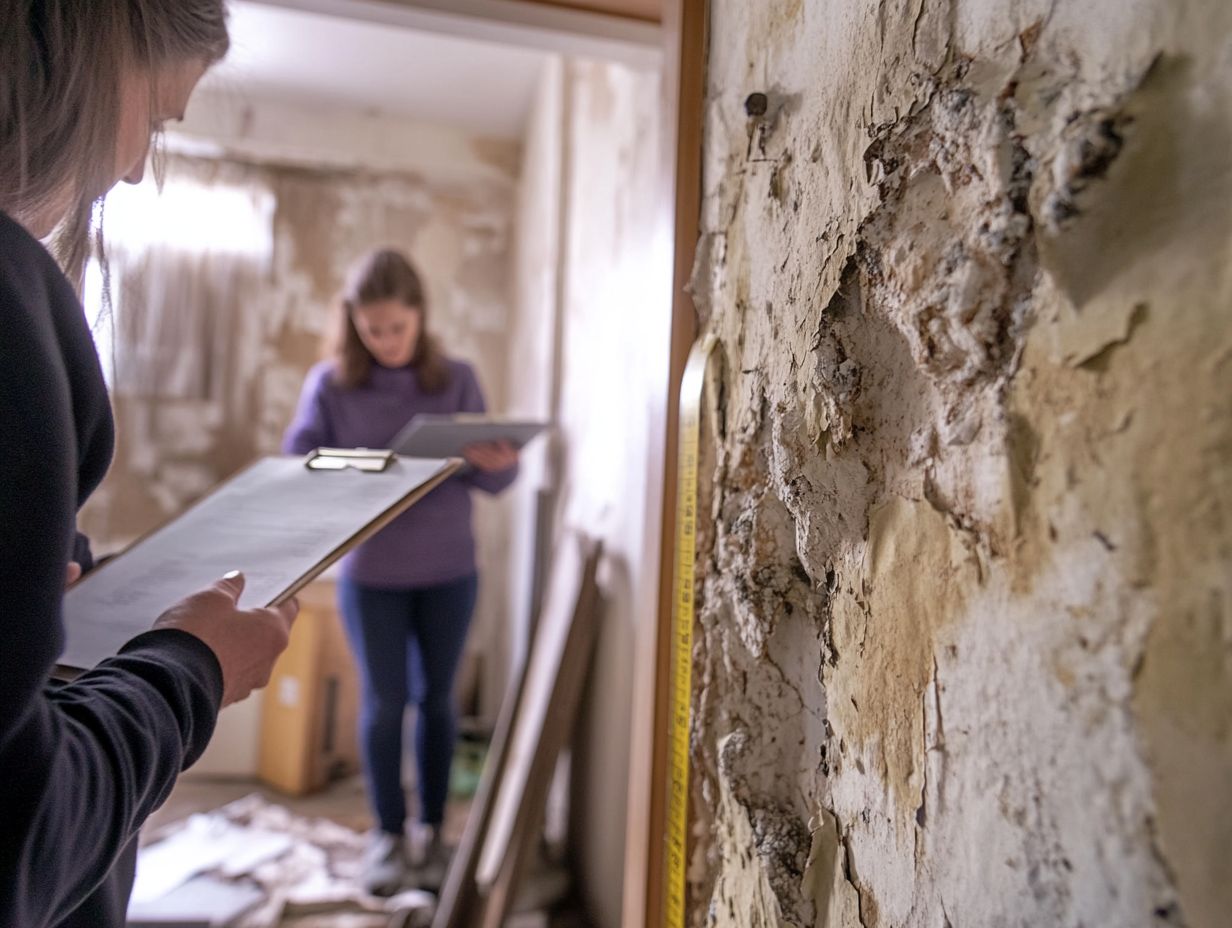
Mold damage can lead to health risks and costly repairs. It’s important to check your home insurance policy to see what home insurance covers regarding mold, and explore alternative coverage options if needed.
Understanding Mold Damage and Home Insurance
Understanding mold damage and its connection to homeowners insurance is vital for homeowners aiming to safeguard their property against the adverse effects of mold growth.
Mold can come from many sources, like burst pipes, malfunctioning appliances, or high humidity. Each can lead to substantial property damage and health concerns.
It s imperative to thoroughly review your insurance policy to identify coverage options and exclusions that may affect your financial obligations in the event of mold contamination.
Knowing about mold remediation processes can help you with your insurance claims and settlements, positioning you to navigate these situations more effectively.
What is Mold Damage?
Mold damage refers to the deterioration of your property caused by mold, a type of fungus that flourishes in moist environments and poses serious health risks.
Various mold types, including black mold, Aspergillus, and Cladosporium, each present their own risks and challenges.
The dampness often found in bathrooms, basements, or areas with water leaks creates the perfect breeding ground for these molds to thrive.
Exposure to mold can lead to respiratory problems, allergic reactions, and severe complications for individuals with compromised immune systems.
Given these potential dangers, prioritizing timely mold inspection and effective remediation is crucial to safeguard your property and the health of its inhabitants.
Types of Home Insurance Coverage
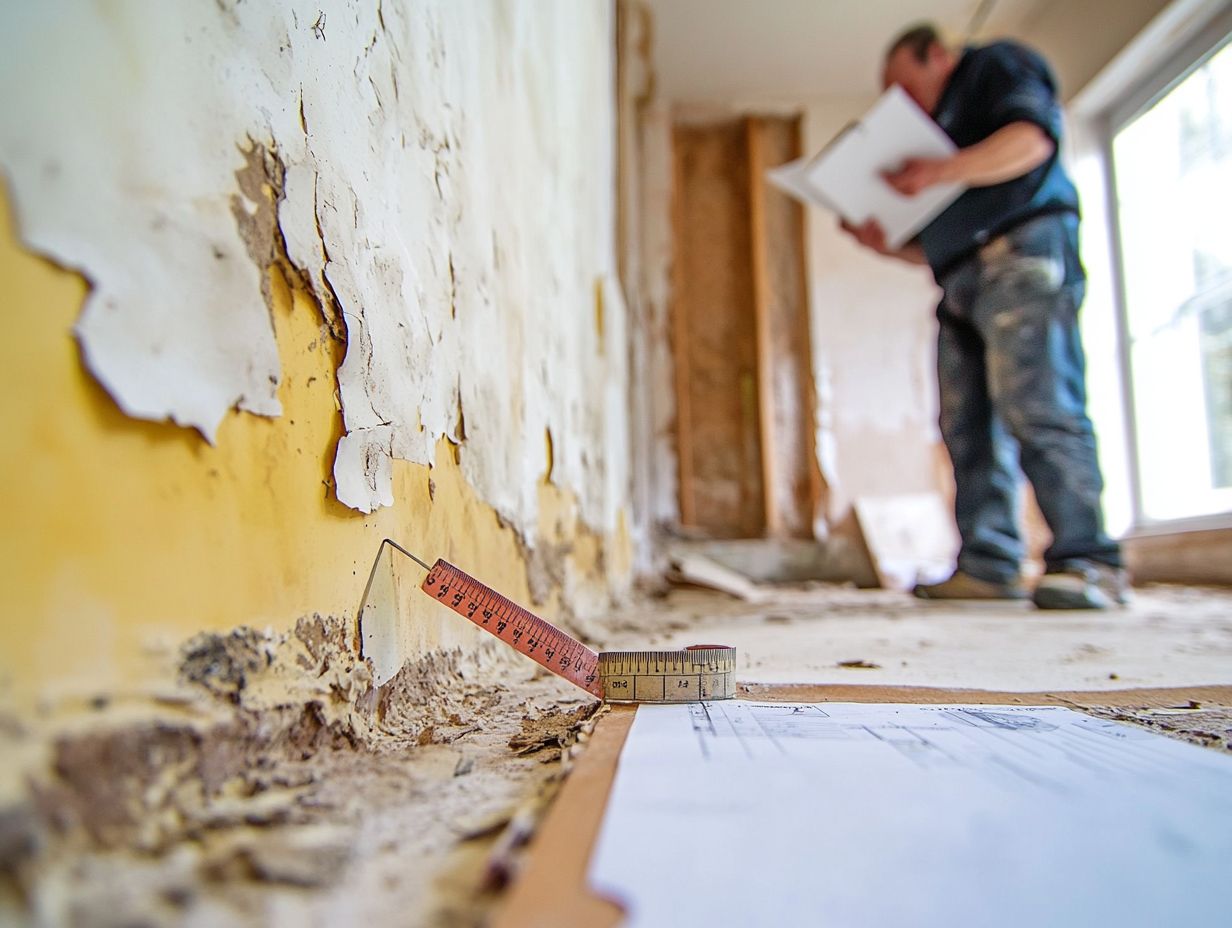
Homeowners insurance offers various coverage options to protect against different types of property damage, including mold and water damage.
Understanding the array of available policies is essential. A standard homeowners insurance policy typically covers common risks like fire or theft. However, if you re concerned about water-related damages, flood insurance may be necessary.
Specific mold insurance can provide an extra layer of protection, especially since mold can surprise you when you least expect it.
Familiarize yourself with coverage limits and exclusions, as insurance providers often have specific guidelines regarding mold-related claims, which can vary widely among different insurers.
Does Home Insurance Cover Mold Damage?
Determining whether home insurance covers mold damage can be intricate.
Many policies come with specific exclusions and conditions that can significantly influence the extent of coverage for mold-related issues. It’s essential to delve into the details of your policy to understand what is included and what is excluded.
Don t wait! Review your coverage today to keep your home safe from mold damage.
Factors that Determine Coverage
Several factors influence whether mold damage is covered under your homeowners insurance policy. For example, it’s important to know whether home insurance covers tenant damage, as this can affect your coverage options. Other considerations include the cause of the mold, the type of coverage you have, and any specific exclusions detailed in the policy.
Understanding these elements is crucial for you as a homeowner. For instance, if mold develops due to a sudden incident like a burst pipe or flooding, there s a chance it might be covered. Just ensure you maintain proper moisture control.
Humidity levels also play a significant role. Properties with high humidity face a greater risk of mold growth. Review your insurance policy now to avoid surprises later!
Many policies clearly outline limitations or requirements for mold coverage, which can vary widely. Being aware of these nuances will enable you to effectively safeguard your property.
What to Do if Your Home Insurance Doesn’t Cover Mold Damage
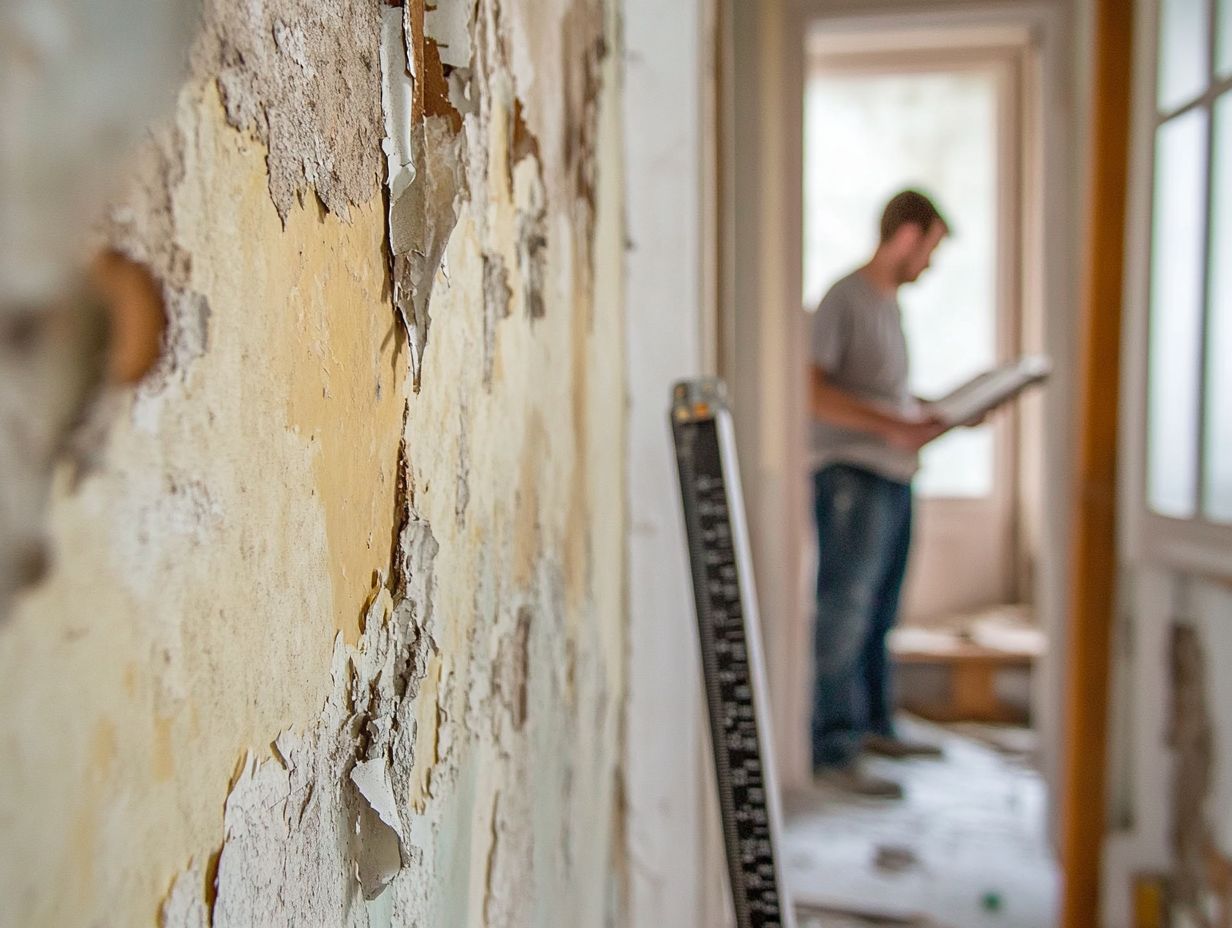
When your homeowners insurance policy falls short of covering mold damage, you may feel disheartened. However, there are alternative options and proactive steps you can explore to tackle this issue.
Alternative Options for Coverage
When standard homeowners insurance doesn’t cover mold damage, consider exploring alternative insurance options specifically designed for mold-related issues. Specialized mold insurance policies can offer vital financial protection in the event of mold infestations, which typical policies often overlook.
You can also request add-ons to your existing insurance. These extra coverages enhance your current protections for mold damage.
To ensure you have adequate coverage, communicate openly with your insurance providers. Discuss the unique risks associated with your home and negotiate terms that truly reflect your needs.
By taking a proactive approach, you can secure comprehensive protection against potential mold-related damages. Take charge of your home s safety today!
Preventing Mold Damage in Your Home
Preventing mold damage is essential for preserving a healthy living environment and safeguarding your property from costly repairs. By taking proactive measures, you can ensure your space remains safe and inviting.
Effective Prevention Strategies
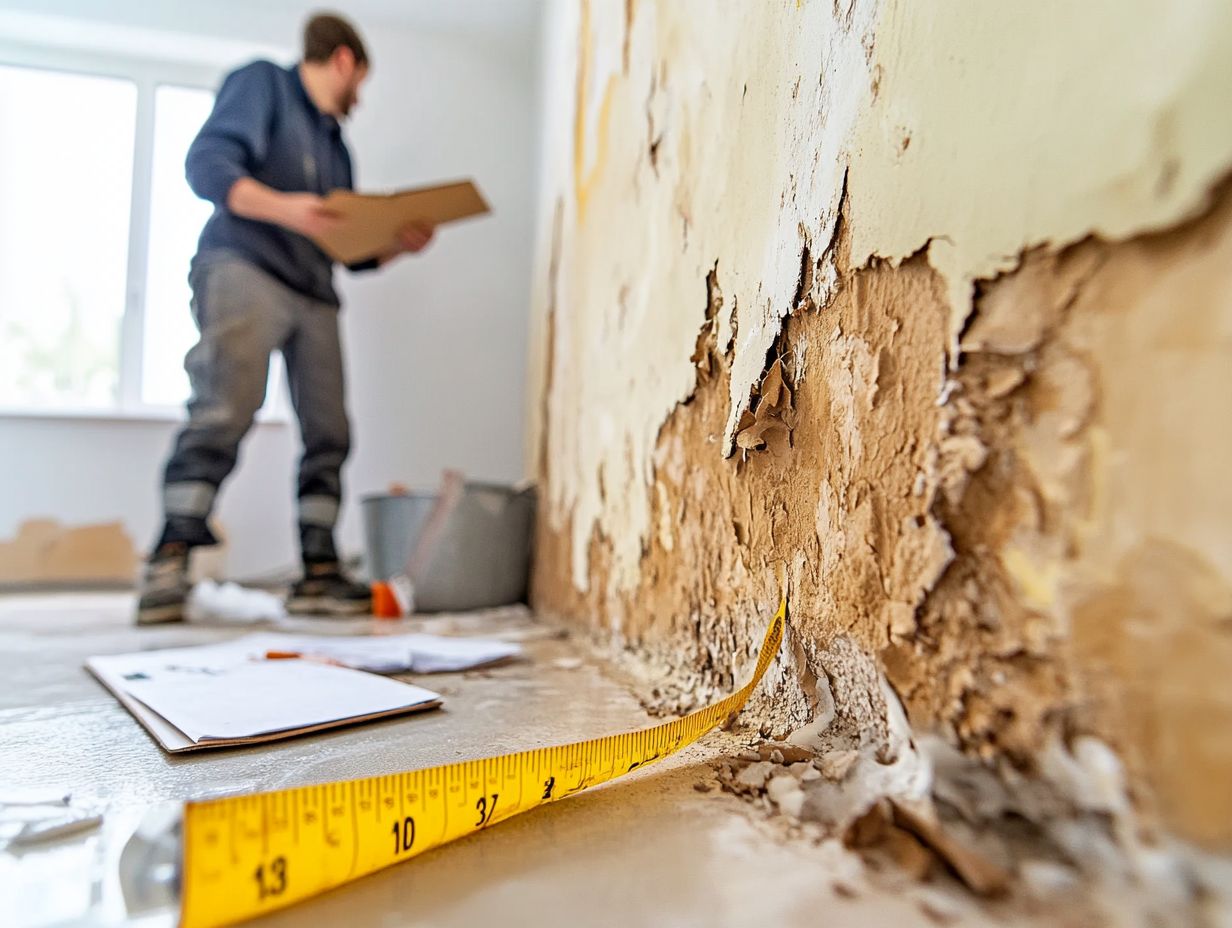
Implementing effective prevention strategies can greatly reduce the risk of mold growth and the damage it can cause. Protect both your health and your property!
Adopting a proactive stance may involve several specific techniques. For instance, using dehumidifiers in areas prone to excess humidity can help maintain optimal moisture levels.
Improving ventilation throughout your home especially in bathrooms and kitchens will enhance air circulation. Regular maintenance checks are crucial; these inspections can help you identify potential moisture sources, such as leaks or condensation issues.
By integrating these methods into your routine upkeep, you can strengthen your living space against mold threats and cultivate a healthier environment for everyone.
Dealing with Mold Damage in Your Home
Addressing mold damage in your home demands prompt action to prevent additional deterioration and minimize health risks linked to mold exposure. Time is of the essence; the sooner you act, the better equipped you are to safeguard your living environment and well-being!
Steps to Take for Remediation and Restoration
The process of cleaning up after mold damage involves several crucial steps. Follow these steps to restore your space safely.
- Start with a detailed check of the area. This helps you see how bad the mold is and if there are moisture issues.
- Next, safely remove contaminated materials. Sanitize surfaces to prevent mold from growing back.
- Then, dry the area completely. Use dehumidifiers and fans to remove moisture from every corner.
- Document each step. This helps with insurance claims and keeps a record of your efforts.
- Consider hiring professional cleaners. They have the right tools and know-how to handle mold cleanup effectively.
Frequently Asked Questions
Does Home Insurance Cover Mold Damage? Yes, most standard home insurance policies cover mold damage if it results from a covered event, like a burst pipe or roof leak. For related inquiries, you may also want to check if home insurance covers smoke damage.
What is considered a covered peril for mold damage?
Covered perils usually include sudden water damage from plumbing issues or storms.
Will my home insurance cover mold damage from a slow leak?
Most policies do not cover mold from slow leaks. Regularly check for leaks to prevent mold growth.
Do all home insurance policies cover mold damage?
No, not all policies include mold coverage. Review your policy or talk to your insurance provider for details.
Are there any exceptions to home insurance coverage for mold damage? Some policies may exclude mold damage due to neglect or lack of maintenance. It’s also important to know if home insurance covers structural damage. Understanding your policy is crucial.
What should I do if I discover mold damage in my home?
Act quickly! Report the damage to your insurance provider and document everything. They will guide you through the next steps.


